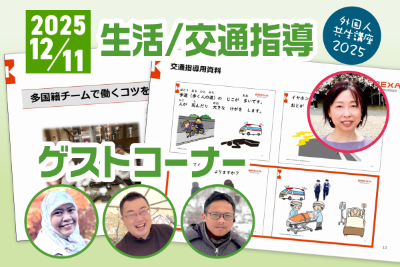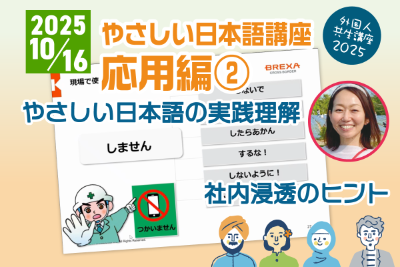- やさしい日本語
- ひらがなをつける
- Language
We provide multilingual content through machine translation. Translation accuracy is not 100%. About the multilingualization of the JAC website
- About JAC
- JAC Membership Information
- Specified Skilled Worker Acceptance
- Specified Skilled Worker Overview of the system
- 10 Mandatory Assistance for Foreigners
- Online individual consultation
- Seminar on Coexistence with Foreign Nationals
- Leading examples of host companies
- Case studies collection "Visionista"
- Foreigner's Voice
- Foreign Resident Acceptance Manual / Q&A
- Useful column "JAC Magazine"
- Acceptance support services
- Specified Skills Acceptance Support Service
- Skills improvement support
- Online Special Education
- Skill training
- Japanese Language Course
- Education and Training Support
- Subsidy system for obtaining qualifications
- Support for creating a comfortable workplace
- Temporary Return Support
- CCUS charge support
- Support system for promoting the accumulation of employment history
- Post-acceptance training
- Compensation system for Specified Skilled Worker (i)
- Daily life support
- Medical interpretation support
- Support for daily life problems
- freeJob matching
- The Specified Skills Evaluation Exam
- Home
- JAC Magazine
- Specified Skilled Worker System Key Points
- Explaining how to accept foreign workers into the construction industry and the preparations to do so!
- Home
- JAC Magazine
- Specified Skilled Worker System Key Points
- Explaining how to accept foreign workers into the construction industry and the preparations to do so!

Explaining how to accept foreign workers into the construction industry and the preparations to do so!
I wrote the article!

(One company) Japan Association for Construction Human Resources
Chief of Research and Development Department / Administration Department / Public Relations Department
Motoko Kano
(Kano Motoko)

Hello, this is Kano from JAC (Japan Association for Construction Human Resources).
Many companies are considering accepting foreign workers into the construction industry, but are unsure how to turn them into employees.
When accepting foreign workers, there are some points to be aware of, such as checking their residence status.
This time, we will explain how to accept foreign workers into the construction industry.
Let's find out the process foreign workers go through from leaving their home country to working for a company, and the preparations required for their acceptance.
How to attract foreign workers to the construction industry?
We will introduce the general process for accepting workers living abroad into a Japanese construction company.
In many cases, foreign workers find job offers in Japan by obtaining job information from companies known as dispatching organizations, which fall under the category of "agency agencies" under the Enforcement Regulations of the Employment Security Law.
In Japan, there are newspapers, magazines, portal sites, etc. that handle recruitment information, as well as employment placement agencies that accept job offers and job searches.
If you use an employment placement agency, you should be aware that, in principle, only free employment placement agencies can handle workers engaged in construction work.
There are also public institutions in Japan, such as the Ministry of Health, Labor and Welfare's Employment Service for Foreigners, Hello Work, and Fresque.
We provide career counseling and job introductions to foreign students and workers who wish to find employment in Japan.
First, we will start recruiting through recruitment information providers, free employment placement agencies, and Hello Work.
When we receive an application from a foreign national, we first look at their resume and work history and then consider whether they will be able to obtain or already have the residence status required for the work we are thinking of having them do at our company.
For example, if you are engaged in construction work, you may work with a status of residence of "Specified Skilled Worker (i)" as your status of residence.
In this case, it is necessary to (1) successfully complete Technical Intern Training (ii) of the corresponding construction occupation in the past, or (2) pass a certain Japanese examination and pass the The Specified Skills (i) Evaluation Exam in the construction field.
In this way, before proceeding to the interview, we will confirm whether the candidate is able to obtain the residence status that we expect the candidate to obtain upon joining the company, or whether the candidate already has it.
If you proceed to the interview, you will be asked to verbally confirm any information that is difficult to grasp from a resume or job history and that is relevant to the employment opportunity.
In addition, explaining the work they will be doing after joining the company, as well as their living environment and area, will help prevent mismatches.
If we decide to hire you as a result of the interview, we will conclude an employment contract.
After that, if you do not have the necessary residence status to work, you will need to apply for permission to change your residence status or for a Certificate of Eligibility.
The foreign national is then hired, and at the time of hiring, the original residence card is checked, and based on the information on the residence card, a "Notification of the Employment Status of Foreign Nationals" is submitted to the Minister of Health, Labour and Welfare at a Hello Work office or other such place.
After foreign workers enter the country, there are many situations in which they require support from the accepting company.
It would be a good idea to have someone help you with the procedures, such as securing housing, opening a bank account to receive your salary, registering as a resident at your city or ward office, and getting a mobile phone, as these can be complicated and difficult for foreigners.
Benefits of accepting foreign workers in the construction industry
The construction industry is facing a serious labor shortage, especially among the younger generation.
By enlisting the help of young, physically active foreign workers in their 20s and 30s, it may be possible to alleviate the labor shortage and improve work efficiency.
In addition, accepting foreign workers requires careful manual creation and training, so this also serves as part of in-house training.
There are also cases where this has led to companies expanding overseas, and where hearing opinions from an overseas perspective has sparked new ideas.
Required residence status and available types of work when hiring foreigners in the construction industry
The required status of residence varies depending on the type of work.
Even within a single industry, there are residence statuses that may be restricted depending on the work you do, so be sure to check.
We will introduce you to the residence statuses that allow you to work in the construction industry.
Technical Intern Training
Technical Intern Training The system aims to promote international cooperation through the transfer of skills, etc. based on human resource development.
There are two types of Technical Intern Training: "company alone" and "group supervision type".
- Single company: A Japan company (trainee) accepts employees from overseas subsidiaries and business partners to conduct Technical Intern Training.
- Group supervision type: Non-profit organizations such as the Chamber of Commerce and Industry accept Technical Intern Training students and conduct Technical Intern Training at the company where the internship is conducted.
Technical Intern Training The classification of the system and the status of residence differ depending on the acceptance method for the company's sole and group supervision types.
| First year in Japan (Acquisition of skills, etc.) |
2nd-3rd year after entering Japan (Familiarization with skills, etc.) |
4th to 5th year after entering Japan (Proficiency in skills, etc.) |
|
|---|---|---|---|
| Single company type | No. 1 Company Sole Technical Intern Training (Status of Residence "Technical Intern Training No. 1 a") |
No. 2 So-Person Technical Intern Training (Status of Residence "Technical Intern Training No. 2a") |
No. 3 Single Company Technical Intern Training (Status of Residence "Technical Intern Training No. 3b") |
| Group supervision type | No. 1 Group Supervision Type Technical Intern Training (Status of Residence "Technical Intern Training No. 1b") |
No. 2 Group Supervision Type Technical Intern Training (Status of Residence "Technical Intern Training No. 2b") |
No. 3 Group Supervision Type Technical Intern Training (Status of Residence "Technical Intern Training No. 3b") |
Technical Intern Training does not allow you to engage in simple tasks.
As of February 2023, there are 22 occupations and 33 industries that can be engaged in construction-related work.
Tobiya Carpentry construction work, Framing construction work, Stone processing work, and rebar assembly are examples of work.
Technical Intern Training For information on the work that students can do, please refer to the "What is the Foreigner Technical Intern Training System 3. Construction-related" of the Japan International Human Resources Cooperation Foundation.
In addition, Technical Intern Training students are allowed to work for a limited period of time, and they are allowed to stay for one year in Technical Intern Training No. 1, two years in Technical Intern Training (ii), and two years in Technical Intern Training No. 3.
If you pass the exam and go well, you can Technical Intern Training for up to 5 years.
However, only companies that have been certified as excellent trainees can transition to Technical Intern Training No. 3 and accept No. 3.
In order to be certified, you must submit a "Certificate of Compliance with Good Requirements" to Foreign Technical Intern Training Organization, undergo a review of the status of passing the skill test, the status of disappearance, and the support system, and clear the conditions.
Skills
The status of residence "skilled" allows you to engage in activities with skilled skills in a special field of industry.
You must have foreign architectural or civil engineering skills and also need 5~10 years of work experience.
Architectural or civil engineering skills unique to foreign countries are skills that are not found in Japan.
Gothic, Romanesque, Baroque, Chinese, Korean, etc.
This includes the frame wall construction method and the direct pasting method using imported stone.
The period of stay can be 5 years, 3 years, 1 year, or 3 months, depending on the Immigration Services Agency of Japan, depending on the desired period of stay, the size of the employer, and the business conditions of the company to be the employer.
Status or position-based status
There are four types of residence status based on status or position: "Spouse or Child of a Japanese National," "Spouse or Child of a Permanent Resident," "Permanent Resident," and "Long-Term Resident."
This status of residence is not originally for the purpose of working, but is based on a certain relationship with Japan through marriage or other reasons.
There is no time limit for employment, and you can also engage in simple tasks.
Permission to engage in activities other than those permitted by status of residence
Those with a "Student" or "Dependent" residence status, which normally prohibits them from working, can apply for a comprehensive activity permit, which allows them to work up to 28 hours per week (up to 8 hours per day during long vacation periods for educational institutions).
You can also do menial tasks within a limited time frame.
Specified Skills
In order to secure human resources in the construction industry, the status of residence is "Specified Skills" to accept foreigners who will be ready to work with certain expertise and skills.
Those who have completed the Technical Intern Training (ii) well or passed a The Specified Skills (i) Evaluation Exam in certain Japanese and construction fields can obtain Specified Skilled Worker (i) status of residence.
There are two Specified Skills, "Specified Skilled Worker (i)" and "Specified Skilled Worker (ii)", but as of February 2023, Specified Skilled Worker (ii) is only granted in two fields: the construction field and the shipbuilding and shipbuilding industry field.
*Added in May 2024: Of the total 16 industries, 11 fields can be accepted in Specified Skilled Worker (ii), excluding nursing care, Automobile transportation business, railways, forestry, and Wood industry.
The maximum period of stay for Specified Skilled Worker (i) is 5 years.
For more information on Specified Skills, please see "What is Specified Skills?
Preparing to accept foreigners into the construction industry
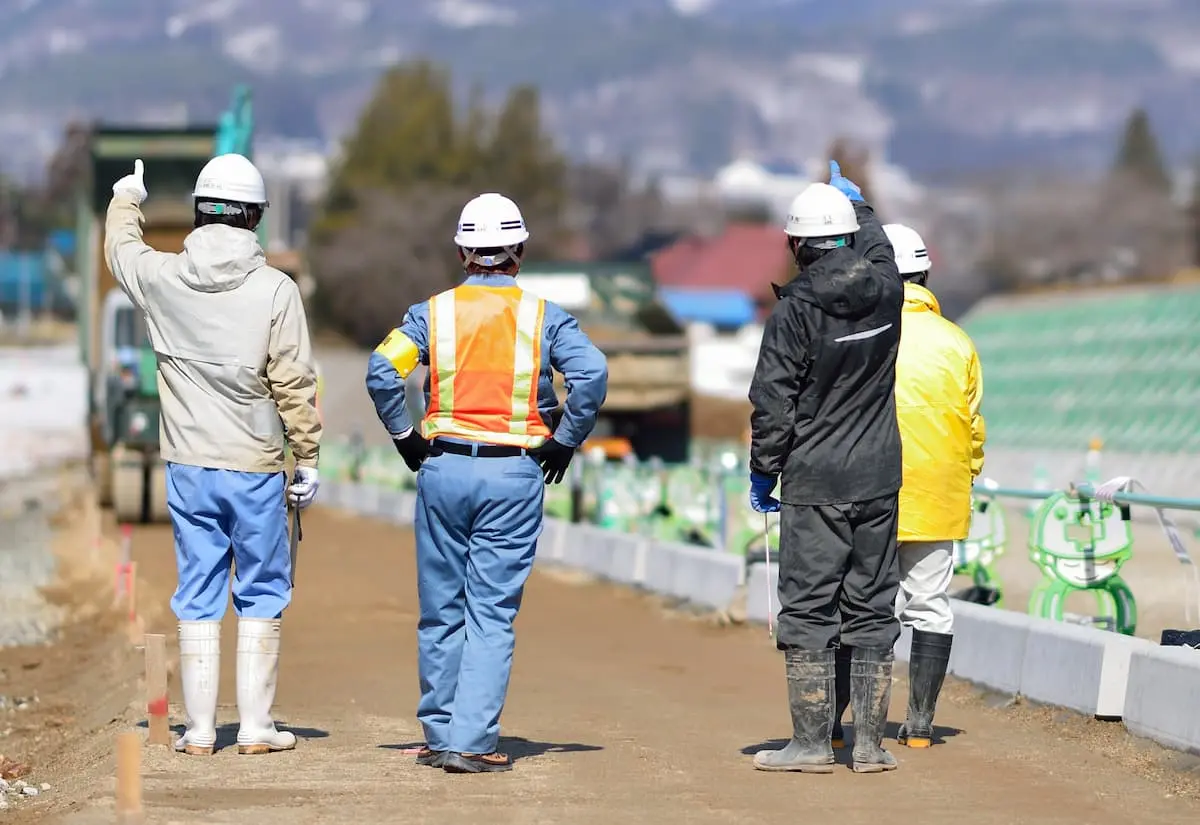
Advance preparation is essential when accepting foreign workers into the construction industry.
In particular, be sure to thoroughly check your residence status.
Even if your residence status allows you to work, there are cases where you cannot work in the construction industry, or you cannot perform simple tasks in the construction industry.
If an illegal worker is employed, both the worker and the employer will be held liable.
In some cases, you may need to take steps such as contacting the Immigration Bureau.
Also, when hiring a foreigner, you are required to submit a "Notification of Foreign Employment Status" to the Minister of Health, Labour and Welfare, and if you fail to do so, you will be fined 300,000 yen per person, so be careful.
Improving the working environment is also important when accepting foreigners into the construction industry
When accepting foreigners in the construction industry, it is important to create a working environment in both soft and hard aspects.
One of the best ways to improve software is understanding the workplace.
In order for foreigners to work smoothly in Japan, it is essential to understand the Japan employees working in the field.
It is necessary to ensure that the child fully understands the significance of hiring foreign workers and that they have an understanding of religion and other cultures.
In particular, religious issues require consideration.
The concept of religion that you need to know when accepting foreigners and measures to prevent trouble is explained in detail in "Let's know the issues and considerations related to religion when accepting foreign workers".
Please take a look.
Next, the maintenance of the hardware side is the development of a safe working environment.
There are many dangerous jobs in the construction industry, and it is important to create an environment where everyone can work with peace of mind.
In the construction industry, efforts are also being made to ensure that foreign workers can work in Japan with peace of mind.
The most famous of them is the "Declaration of Specified Skilled Worker Safety and Security Acceptance in the Construction Field" made by the Japan Construction Industry Federation.
The Declaration of Safety and Security Acceptance aims to build construction sites where foreign workers with high skills can work safely and securely.
We will promote the following initiatives from three perspectives: "Elimination of illegal employment," "Ensuring safety at the site," and "Safe treatment."
[Elimination of illegal employment]
- Confirmation of acceptance plan certification
- CCUS (Construction Career Up System) site registration, technician registration, and business registration confirmation
- Confirmation of time correction of CCUS (Construction Career Up System) registration information
- On-site identity verification
[Ensuring safety at the site]
- Regular Japanese language education and safety training
- Thorough instructions on-site
- Adoption of safety signs that are easy for foreigners to understand
[Reassuring treatment]
- Fair wages and social insurance
- Response when receiving a consultation
- Actions taken against violating companies
- Elimination of discriminatory acts
*Reference: Declaration of Specified Skilled Worker Safety and Security Acceptance in the Construction Sector (Japan Construction Industry Federation)
The environment that foreign workers find easy to work in is the same for Japanese workers.
Let's aim to create a safe and secure working environment for all people involved in the construction industry.
Summary: Preparation and consideration are required when accepting foreigners into the construction industry! Pay attention to residence status too
When accepting foreign workers, we recruit using recruitment information providers, employment placement companies, and Hello Work.
When using an employment placement company, in principle, only free employment placement companies can handle workers engaged in construction work.
Companies need to check the type of status of residence and the types of jobs they can engage in before proceeding with an employment contract.
Please note that some status of residence restricts the scope of work or does not allow you to work in the first place.
In the unlikely event that you hire an illegal worker, not only the person but also the company that hired you will be subject to punishment.
When accepting foreign workers, we have developed both software and hardware to create an environment where foreign workers can work comfortably.
Creating a safe working environment will be beneficial for Japan employees as well.
If you are a company in the construction industry that is thinking of accepting Specified Skilled Worker, please feel free to contact JAC!
*This column is based on information as of May 2024.
The author of this article

(One company) Japan Association for Construction Human Resources
Chief of Research and Development Department / Administration Department / Public Relations Department
Motoko Kano
(Kano Motoko)
Born in Aichi Prefecture.
He is in charge of public relations, research and investigation, and is the person behind social media.
We update our social media accounts daily with the desire to make people fall in love with Japan, to spread the appeal of construction from Japan to the world, and to ensure that Japan's construction industry continues to be the industry of choice around the world.
He is also engaged in research into the feasibility of implementing skills evaluation exam in Asian countries, and is conducting interviews with local organizations in each country.
Related articles
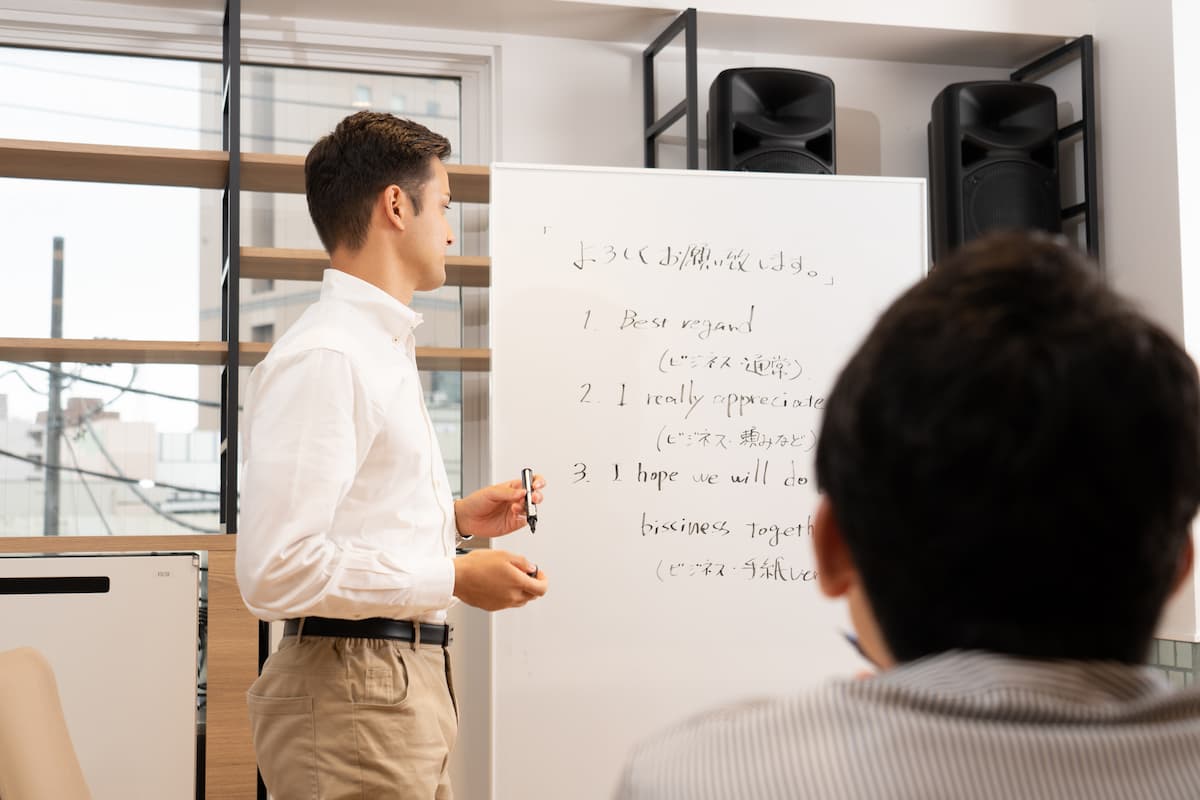
What is the estimated cost to pay for Registered Support Organizations? See how you can support yourself
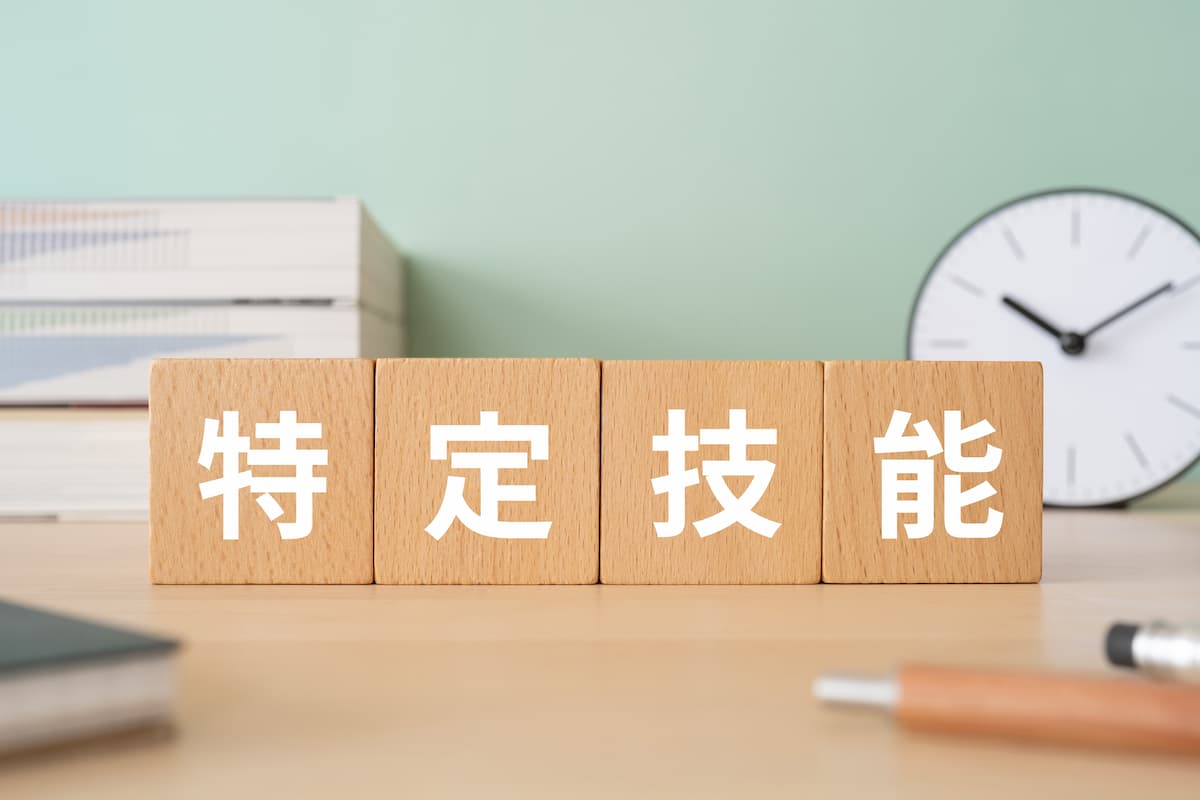
What is Registered Support Organizations? Introducing the content of support in an easy-to-understand manner

What is the "life orientation" that is carried out when hiring a Specified Skilled Worker?
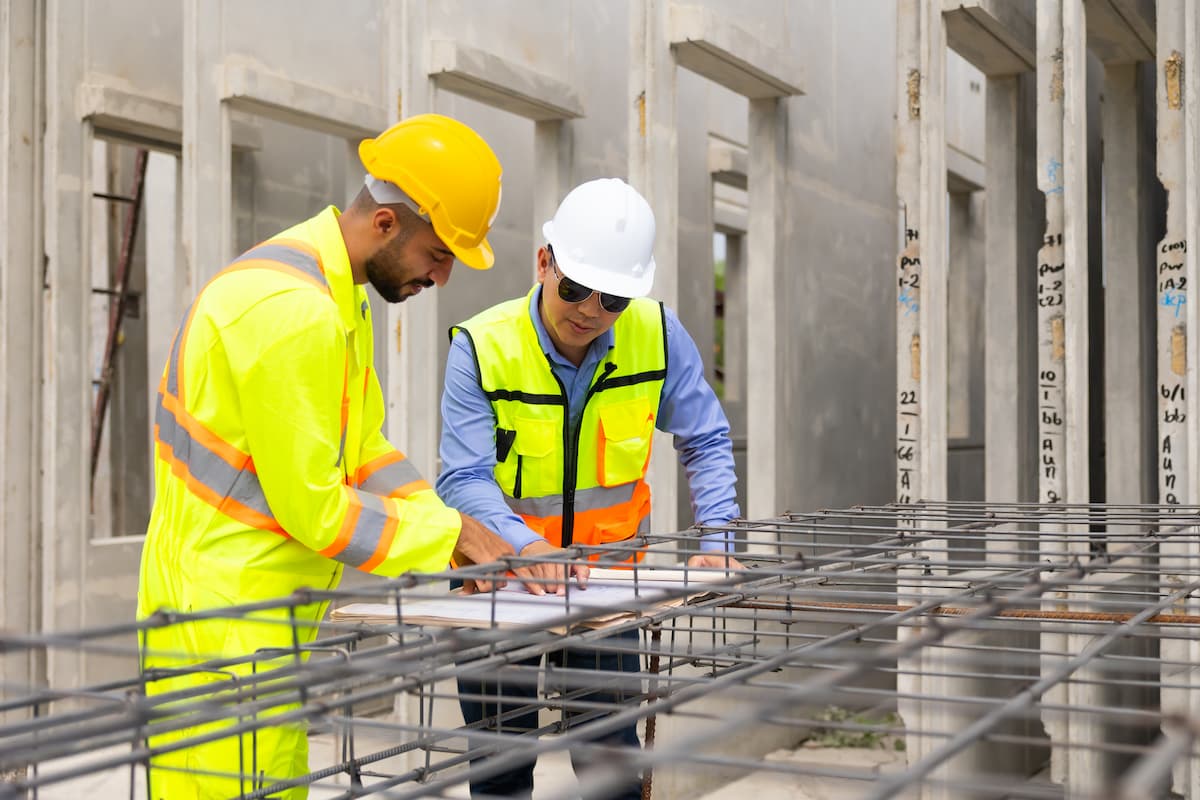
What is the number of people accepted for Specified Skilled Worker? Is there a limit to the number of people in the construction field?














